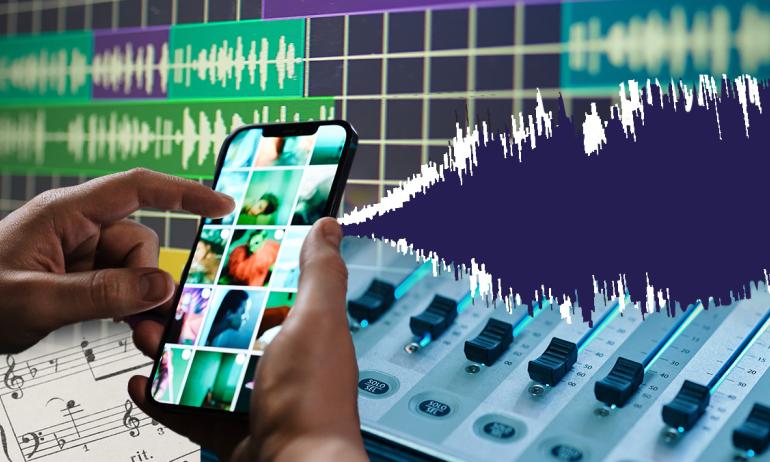Deepen Your Orchestral Skills as a Film Composer

The bridge from musical aspiration to career path often comes down to one thing: access, whether it’s professional tools and/or mentors. For those interested in composing for media, from film and TV to video games and virtual environments, gaining that access can feel challenging, given the advanced technologies that go hand-in-hand with musical knowledge. Unlike, say, a new guitarist picking up a used instrument on the cheap, beginner composers may feel overwhelmed trying to determine which software-based instruments to choose, let alone learn how to use.
The creative process is not always linear or logical. What can be true for one piece of music can be horribly wrong for the next one. . . . It's always helpful to have a clear sense of form and to envision the full composition.
—
Access to cutting-edge tools and faculty with industry experience has been a hallmark of Berklee’s Screen Scoring Department since its inception in 1979. Through a partnership with German company Orchestral Tools, Berklee has extended its reach to anyone with an internet connection in the Virtual Orchestration YouTube series, which has reached tens of thousands of viewers since its inception in January 2023.
In addition to videos hosted by composers brought in by Orchestral Tools, Berklee faculty provide in-depth training on topics such as scoring a horror movie scene and how to make high-quality harp glissandi using a MIDI keyboard. Below, take a look at highlights from the episodes featuring Berklee scoring faculty.
Advanced Strings and Zed Clef
"I like to think of orchestrators as interpreters or translators. . . . Much of the orchestration job is making many small decisions and problem-solving for the composer." —Sean McMahon, ChairScoring a Horror Scene
"Simple meters like 2/4, 3/4, and 4/4 would give the scene a stable feeling. But this is a horror film. . . . Odd meters such as 5/8, 7/8, and 7/4 are constantly shifting. They are a little unpredictable and make us feel uncomfortable." —Jungmin Lee, Assistant ProfessorScoring an Action Scene
"The creative process is not always linear or logical. What can be true for one piece of music can be horribly wrong for the next one. . . . It's always helpful to have a clear sense of form and to envision the full composition." —Claudio Ragazzi, ProfessorRealistic MIDI Glissandos
"Although many sample libraries offer fully sampled glissandi, they often don't do what you want. . . . Therefore, it's useful to know how to quickly create any kind of glissando you can imagine from a regular, playable harp sample." —Andreas Bjørck, Associate ProfessorMake the Perfect Pad
"As an emerging composer, you might sometimes wonder, 'How can I stand out from the crowd?' . . . I will show you how to create a custom ambient pad through recycling existing instruments in your template. " —Yao Wang, Assistant ProfessorWrite Angelic Glissandi
"Bisbigliando can be performed as few as two strings or as many as eight strings. If it is performed on two strings that have been tuned to the same pitch enharmonically, we can create a tremolo effect similar to violin tremolo." —Tim Huling, Associate ProfessorCreate Your Own Template
"A template is simply a session that you create in your DAW (digital audio workstation) ahead of time with all the elements you need already set up and ready to go. . . . Think of it as setting up your ideal workspace." —Max Blomgren, Associate ProfessorWrite Incredible Melody Variations
"The great thing about piano for a composer is that all the notes are visually in front of you in a very systematic and organized way. Plus, it covers the entire orchestral register, which makes it way easier to bring your ideas to life and help develop your themes with less limitations." —Esin Aydingoz B.M. '17


